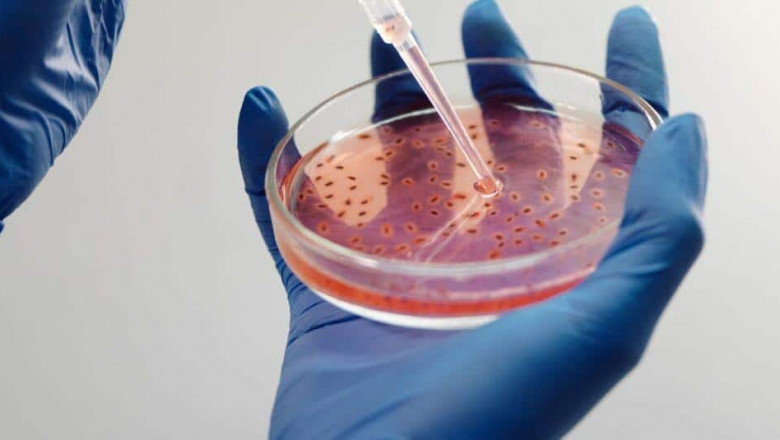views
Microbial API refers to fermentation-derived active pharmaceutical ingredients (APIs) that are produced using microorganisms like bacteria, fungi, and yeast. These microbes are cultured in bioreactors and fermentation vessels to synthesize therapeutic molecules.
- Common microbial APIs produced include antibiotics, antivirals, amino acids, vitamins, organic acids and alcohols through microbial fermentation. Penicillin, cephalosporins, and erythromycin are some top-selling antibiotic classes produced this way.
- Asia Pacific holds the largest share of over 35% of the global market due to presence of major manufacturing facilities in China and India. China is the largest producer and exporter of Microbial API globally.
- Monoclonal antibody production using microbial platforms is an emerging area of growth in recent years due to benefits like low-cost, ease of scale-up and expression of post-translational modifications
Key Microbial APIs and their Applications
Antibiotics
Production of various antibiotics for treating bacterial infections is one of the major applications of microbial fermentation. Some of the commonly produced antibiotic classes and their uses include:
- Penicillins: Used for treating respiratory tract, skin, ear and urinary tract infections caused by susceptible bacteria. Popular penicillins include ampicillin and amoxicillin.
- Cephalosporins: Effective against both gram-positive and gram-negative bacteria. Common cephalosporins produced include cefoperazone, cefuroxime and cefixime.
- Macrolides: Treat respiratory tract, skin and soft tissue infections. Key macrolides include erythromycin and azithromycin.
- Aminoglycosides: Used for treating infectious caused by both gram-positive and gram-negative bacteria. Streptomycin, neomycin and gentamicin are major aminoglycoside antibiotics.
Amino Acids
Several amino acids used either as nutritional supplements or intermediates for other fine chemicals are produced using fermentation routes. These include:
- L-Lysine: Used as a dietary supplement and animal feed additive. Also used to produce lysine derivatives in pharmaceuticals.
- L-Glutamic acid: Has applications as a flavor enhancer in food products. Also used to make other glutamic acid derivatives.
- L-Threonine: Important amino acid for nutritional supplements due to its various metabolic functions.
- L-Asparagine: Used as an intermediate for manufacturing other fine chemicals and active ingredients.
Vitamins
Vitamin B complexes including riboflavin, pantothenic acid, pyridoxine, biotin and folic acid are popular microbial vitamins. Key applications include:
- Food & beverage fortification: Used to enrich products like bread, cereals and nutritional supplements.
- Animal feed: Essential vitamins added to poultry and livestock feeds for promoting growth and health.
- Pharmaceuticals: Components of vitamin preparations used to prevent and treat vitamin deficiencies.
Organic Acids and Alcohols
Citric acid, lactic acid, itaconic acid, gluconic acid, acetone and butanol are common organic substances produced via fermentation routes. Some major uses are:
- Food & beverages: Citric acid is a primary acidulant. Lactic acid is used in dairy and fermented products.
- Pharmaceuticals: Citric acid is used as an excipient and lubricant in medication formulations. Gluconic acid has miscellaneous applications.
- Industrial intermediates: Itaconic acid and acetone have growing demand as precursors for resin polymers, plasticizers and solvents respectively.
Opportunities and Challenges in the Global Microbial API Industry
Opportunities
- Move towards fermentation-based production: With rising concerns over pollution caused by chemical synthesis, fermentation provides a more eco-friendly production method.
- Cost advantages: Microbial fermentation offers benefits like low capital investment, ease of large-scale production and less waste generation compared to chemical and plant extraction methods.
- Newer product segments: Emerging application areas like monoclonal antibody production, advanced therapeutics, food enzymes and specialty chemicals have growth potential for microbial platforms.
Challenges
- Upfront R&D investments: High initial costs are involved in strain development, process optimization and fermentation technology setup.
- Regulatory compliance: Strict regulations regarding GMP, quality standards and environmental impact assessments add to production costs of microbial API manufacturers.
- Supply risks: Reliance on key producing countries like China and India exposes the industry to supply disruptions due toFactors like geopolitical issues, outbreaks or environmental problems.
- Competition: Presence of many domestic and global players intensifies market competition on factors like product pricing, efficiency and innovation.
Choose preferred language for better understanding-
About Author-
Money Singh is a seasoned content writer with over four years of experience in the market research sector. Known for her strong SEO background, she skillfully blends SEO strategies with insightful content. Her expertise spans various industries, including food and beverages, biotechnology, chemical and materials, defense and aerospace, consumer goods, etc. (https://www.linkedin.com/in/money-singh-590844163)






















Comments
0 comment